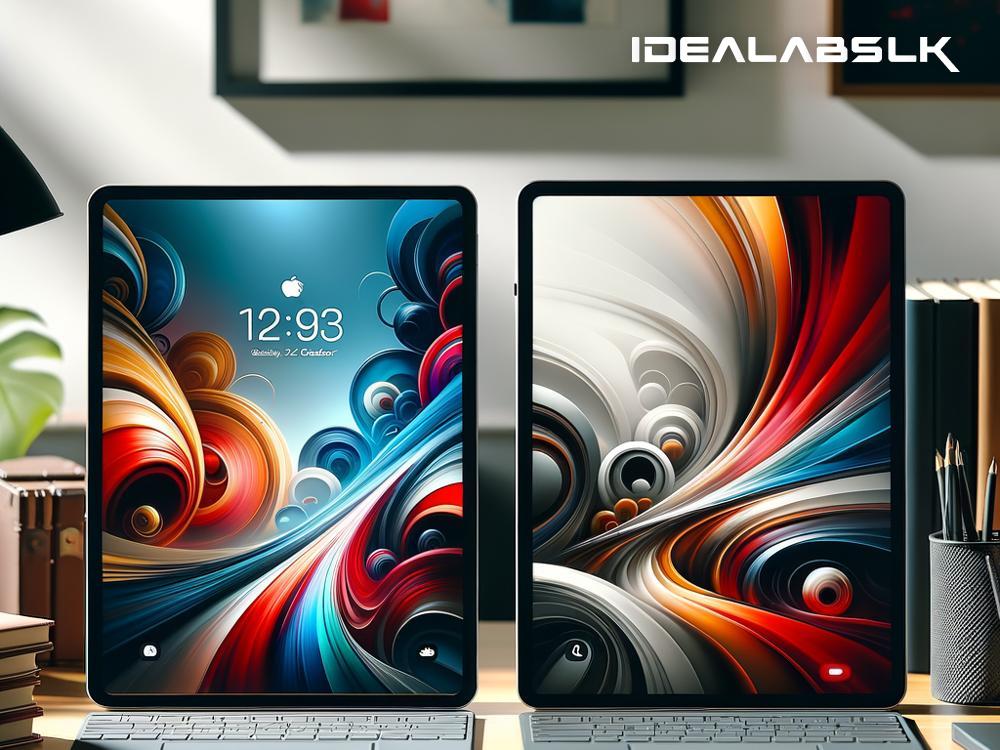Apple iPad Pro 13 vs. Samsung Galaxy Tab S9 Ultra: Professional Tablets Compared
In the world of tablets, the rivalry between Apple and Samsung remains as intense as ever. The professional tablet market, aimed at users seeking powerful devices for work, creativity, and entertainment, is particularly competitive. Two standout products in this space are the Apple iPad Pro 13 and the Samsung Galaxy Tab S9 Ultra. Both are top-of-the-line models from their respective brands, packed with features designed to appeal to professionals and power users. But how do they stack up against each other? Let's dive in and compare.
Design and Display
Starting with the design, both tablets boast premium builds. The iPad Pro 13, with its sleek aluminum body and slim profile, is the epitome of Apple’s design language. It features a stunning 13-inch Liquid Retina XDR display that brings your content to life with superb brightness, color accuracy, and viewing angles.
On the other side, the Samsung Galaxy Tab S9 Ultra showcases a similarly impressive design with a slightly larger 14.6-inch Super AMOLED display that offers vibrant colors and deep blacks, perfect for media consumption. Samsung's tablet also includes an S Pen stylus right out of the box, which is a boon for creative professionals.
Both devices offer stunning visuals and are crafted from high-quality materials, but the choice between them might come down to whether you prefer LCD or OLED screen technology, and if having a stylus included is important to you.
Performance and Software
Under the hood, both these tablets are powerhouses. The iPad Pro 13 is powered by Apple's own M1 chip, which is the same silicon used in some of their laptops and desktop computers. This means it's incredibly fast and efficient, capable of handling anything from 4K video editing to intensive 3D modeling without breaking a sweat.
The Galaxy Tab S9 Ultra, meanwhile, uses Qualcomm's latest Snapdragon processor, which is also extremely powerful and can keep up with heavy multitasking and demanding apps. Both tablets will excel in performance, but the iPad might have a slight edge in raw processing power and efficiency due to the M1 chip.
When it comes to software, the iPad Pro runs iPadOS, which has steadily evolved to offer a more laptop-like experience with features like multitasking windows and trackpad support. Samsung's Tab S9 Ultra operates on Android with a Samsung One UI layer on top, offering a customizable experience and good integration with other Samsung devices. Your preference here might boil down to which ecosystem you're more invested in – iOS or Android.
Camera and Battery Life
For many professionals, camera quality on a tablet is crucial for video conferencing and the occasional photo or document scanning. Both tablets come equipped with high-quality rear and front cameras that are capable of taking clear photos and ensuring you look good during video calls.
Battery life is another critical aspect for professional tablets. Both the iPad Pro 13 and the Galaxy Tab S9 Ultra boast all-day battery life under typical usage conditions. However, the actual battery life will vary depending on how you use the device, with more intensive tasks consuming more power.
Storage and Connectivity
Both the iPad Pro and Galaxy Tab S9 Ultra come with various storage options, going up to 2TB on the iPad and 1TB on the Tab S9 Ultra, which should be ample for most professional needs. When it comes to connectivity, both support Wi-Fi 6 and have models with 5G capabilities, ensuring you're always connected at high speeds whether at home or on the go.
Conclusion
Choosing between the Apple iPad Pro 13 and the Samsung Galaxy Tab S9 Ultra is not easy. Both are exceptional tablets that offer powerful performance, beautiful displays, and a range of professional-grade features. Your decision might ultimately hinge on your personal preference for iOS or Android, the importance of having an included stylus, and whether you prefer the slightly larger screen on the Samsung. Whichever you choose, you'll be getting one of the best tablets on the market for professionals.

